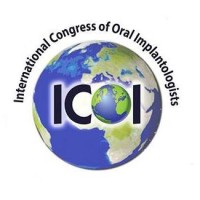 Prioritizing routine dental care is an essential part of maintaining a healthy mouth that looks and functions as it should. By teaming up with a dentist and scheduling regular appointments, patients can minimize dental decay and avoid many problems that would require major restorative dental work down the road.
Prioritizing routine dental care is an essential part of maintaining a healthy mouth that looks and functions as it should. By teaming up with a dentist and scheduling regular appointments, patients can minimize dental decay and avoid many problems that would require major restorative dental work down the road.
What is included in routine dental care?
Routine dental care includes regular visits with a dentist to perform a basic cleaning and mouth examination. The American Dental Association recommends that patients generally see a dentist at least twice a year. People with certain oral health conditions or risk factors may benefit from making an appointment more often to prevent periodontal disease or tooth decay.
During these visits, a dental hygienist performs a deep cleaning of the teeth, which goes beyond basic brushing and flossing. The process often includes scaling, polishing, flossing, and sometimes applying fluoride. The dentist then examines the patient's mouth, looking for signs of decay, oral cancer, gum disease, or issues with biting or swallowing. If any problems are detected during this inspection, further evaluation, such as an X-ray, or a treatment plan may be made. Both the dental hygienist and the dentist can offer education on how to more effectively clean the teeth at home, what foods and habits to avoid, and how to avoid jaw pain.
What are the benefits of regular dental appointments?
Rather than only visiting the dentist when a problem arises, seeing a dentist regularly for routine care has significant benefits for the patient.
Preventing major dental issues
Most dental issues worsen with time, making timely care essential. With dental decay, for example, a minor cavity may only require a filling to address while a long-lasting issue can require a crown, root canal, or even extraction.
Seeing a dentist at least once every six months ensures that significant time does not go by before a serious problem is detected. Additionally, the cleaning portion of the appointment directly protects the teeth and gums against decay and infection by removing plaque before it is allowed to build up.
Detecting signs of oral cancer
The National Institute of Dental and Craniofacial Research claims that there are approximately 53,000 new cases of oral cancer each year. It can often be treated successfully with surgery or radiation therapy when detected early on, and the warning signs are often easily visible, including patches on or irritation of the mouth.
Dentists are the first line of defense against oral cancer. By examining the mouth for any signs and asking the patient about other symptoms, such as jaw pain, a persistent sore throat, or numbness, dentists can identify the warning signs early on and direct patients toward the next steps.
Conclusion
Taking a preventive approach to dental care allows patients to take control of their oral health and tackle issues before they are given the chance to worsen. Setting time aside for routine dental care at least two times a year helps keep teeth clean and bright and allows the dentist to keep a close eye on the overall condition of the mouth.
Request an appointment or call Encino Cosmetic & Dental Implants at 818-578-2333 for an appointment in our Encino office.
Related Posts
Every patient’s smile is different, so it makes sense for dentists to treat patients as individuals with specific needs. Personalized treatment at a routine dental care appointment should be an expected part of visiting a dental professional. Patients can expect dentists to tailor treatment in the areas of general maintenance, cancer screenings, and management of…
Daily oral hygiene habits should not be considered a substitute for the routine dental care that occurs during a dental checkup and cleaning. There are oral health concerns that a dentist will be able to proactively address during an office visit, but the equipment and tools used to care for both teeth and gums are…
For healthy teeth and gums, routine dental care is necessary. For most healthy people, two times a year is the recommended frequency for dentist appointments. This is typically adequate for deeper cleaning and preventive care. However, for some patients, more frequent appointments are necessary to manage certain issues and to prevent problems from becoming more…




